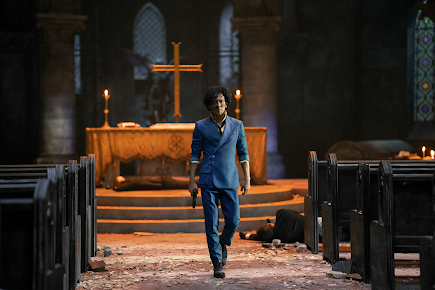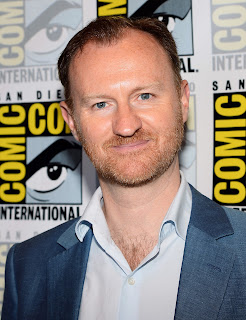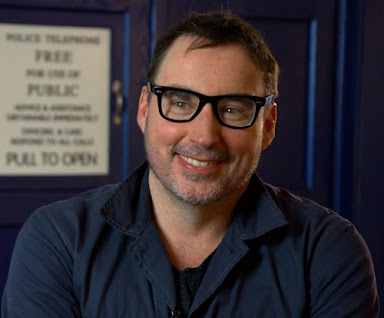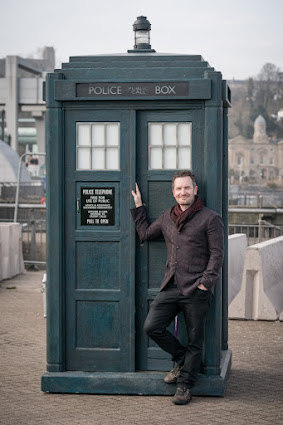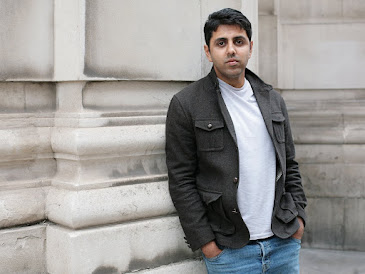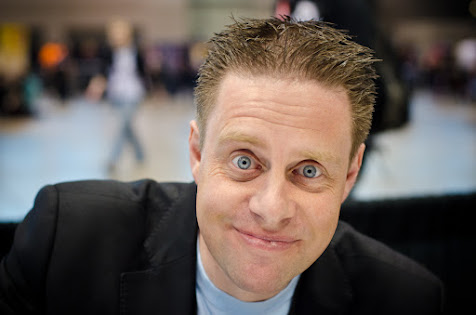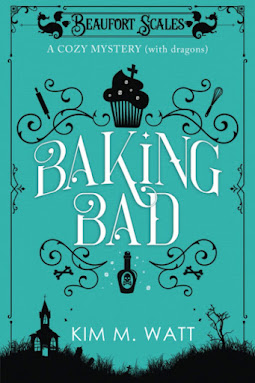Monday 30 August 2021
Maskerade by Terry Pratchett
First publicity images for RESIDENT EVIL: WELCOME TO RACCOON CITY drop
Sony Pictures have released the first three publicity images from their upcoming Resident Evil reboot movie, Welcome to Raccoon City. The movie adapts the storylines from Resident Evil (1996) and Resident Evil 2 (1998) into a single story.
The film is written and directed by Johannes Roberts, with creative input from Capcom. Additional castmembers include Lily Gao, Neal McDonough and Donal Logue. The film is set for release on 24 November. It is not related to either the previous Resident Evil movie franchise or Netflix's upcoming TV version of the story.
Dishonored: Death of the Outsider
Thursday 26 August 2021
XCOM creators spill the beans (a bit) on upcoming Marvel XCOM-alike, MIDNIGHT SUNS
Following rumours from the start of the summer, Firaxis have confirmed they are making a Marvel tie-in game. Midnight Suns melds the turn-based, tactical gameplay of their enormously successful XCOM series with the Marvel superhero IP.
In the game, the player creates their own hero, The Hunter, who joins forces with a roster of Marvel heroes to battle Lilith, the Mother of Demons. Heroes to appear include Iron Man, Wolverine, Blade, Ghost Rider, Captain America, Captain Marvel, Magik, Nico Minoru and Dr. Strange.
The game has been described as a "tactical RPG", suggesting there won't be a deep strategic metagame as in the XCOM series, with instead a more story and character-driven between-battles section. Aside, presumably from the turn-based combat, the game will not share any mechanics with the XCOM series.
XCOM franchise head Jake Solomon has led development, with Marvel Comics artists and writers lending support and assistance, including help in designing The Hunter (who will be customisable in terms of appearance, gender and powers) and The Abbey, a hub area which the team will retire to between missions.
It sounds like the game will be drawing on The Rise of the Midnight Sons comic arc in 1992, in which a group of Marvel heroes and antiheroes join forces to fight Lilith.
This does beg the question of whether Firaxis is developing more XCOM games; both XCOM 2 (2016) and Chimera Squad (2020) had substantial cliffhanger endings that seemed to be setting up more games in the series. However, a second team at the company helmed both XCOM 2's expansion, War of the Chosen, and Chimera Squad, so certainly they have the scope to develop more than one game at a time.
Marvel's Midnight Suns is due for release on Switch, PlayStation 4, PlayStation 5, PC, Xbox One and Xbox X in March 2022. Firaxis will unveil the first gameplay trailer on 1 September.
Bethesda posts three location guides for STARFIELD
Monday 23 August 2021
Live-action COWBOY BEBOP gets first pictures and airdate
DUNGEONS & DRAGONS movie wraps
Co-director John Francis Daley has confirmed that shooting has wrapped on the new Dungeons & Dragons feature film.
Shooting began on or around 29 April, with shooting based at the Titanic Studios in Belfast, Northern Ireland (previously home to Game of Thrones). Location shooting has taken place in Northern Ireland, Iceland and at Alnwick Castle, Northumberland.
Daley co-directed the film with his long-term collaborator Jonathan Goldstein. Their previous projects include the comedy films Horrible Bosses and Game Night, and writing the MCU movie Spider-Man: Homecoming.
This is, technically, the fifth Dungeons & Dragons feature, following on from three increasingly low-budget movies in the 2000s (only one of which was theatrically released) and an animated Dragonlance movie. However, this project has a vastly greater budget.
The film is set in the Forgotten Realms world and the city of Neverwinter will feature. Beyond that, little is known of the plot. The cast includes Chris Pine, Michelle Rodriguez, Justice Smith and Regé-Jean Page, who are believed to be members of an adventuring band who run afoul of a villainous plot orchestrated by Forge Fletcher, played by Hugh Grant.
The film is currently set for release by Paramount Pictures on 3 March 2023. A D&D TV series is also in development with John Wick writer Derek Kolstad developing a concept. Wizards of the Coast have teased this project may involve Forgotten Realms signature character Drizzt Do'Urden in some capacity.
Sunday 22 August 2021
Who could replace Chris Chibnall as the next DOCTOR WHO showrunner?
Doctor Who's current showrunner, and the third since its return to the air in 2005, Chris Chibnall, has announced he is leaving the series after the next season (expected to air this autumn) and a series of four TV movies to follow, airing up to the end of 2022. A new showrunner is expected to take over in 2023. This would ordinarily be daunting, but might be even moreso in this case, as 2023 is also Doctor Who's 60th anniversary.
The field of potential replacement showrunners is much more open than it was in 2014, the last time this question arose, with more chance of a wildcard selection creeping in. Still, let's take a look at the options.
If you want a slam-dunk, "that was easy," choice, Mark Gatiss is arguably the most obvious selection. He has more than twenty years of experience as a television writer and showrunner, having co-showrun the League of Gentlemen franchise (along with his co-creators) since its TV inception (and on radio before that). Since 2010 he has also written and co-produced Sherlock, alongside ex-Doctor Who showrunner Steven Moffat. He also co-created Dracula. He is also an experienced actor, having recently starred in Taboo, Wolf Hall and Game of Thrones (as Tycho Nestoris, of the Iron Bank of Braavos).
His Doctor Who experience is significant: he has written five Doctor Who novels and four audio plays since 1992, written multiple short stories and penned no less than nine episodes of the series itself, ranging from 2005's The Unquiet Dead to 2017's Empress of Mars. He also wrote the 2013 drama about the creation of the show itself, An Adventure in Space and Time, which was a highlight of the 50th anniversary celebrations. Bearing in mind that the new showrunner is taking over in the show's 60th anniversary year, Gatiss is probably the strongest candidate to do something interesting that draws on the show's history.
A few things may count against Gatiss: the BBC has been showing signs of preferring a clean slate from the Russell T. Davies/Steven Moffat era, and might prefer someone with a fresh attitude to the show. In that sense, Gatiss might be over-experienced from his previous Doctor Who work. His episode form is arguably variable (though his novel form was much stronger). However, his recent break from the show (he did not pen any episodes during the Chibnall era) and pursuing other projects might have helped develop his experience (just as Chibnall arguably had to earn his chance to work on the show via Broadchurch).
Sally Wainwright
Sally Wainwright is a formidably-experienced British television producer and writer, noted for creating the offbeat drama At Home with the Braithwaites (starring former Doctor Who Peter Davison), followed by Unforgiven, Scott & Bailey, Last Tango in Halifax, Happy Valley and the critically-acclaimed Gentleman Jack.
She has no Doctor Who experience and limited SFF genre form, but is otherwise one of the most critically-regarded TV producers and writers working in British television; several papers and commentators have ranked Wainwright as the leading choice for the role. The BBC might also consider it a bonus to have a woman as showrunner, something that has not happened since 1965 (when Verity Lambert, Doctor Who's first effective showrunner, stepped down), especially if the next Doctor is also to be played by a woman (which remains unconfirmed).
The main negative against Wainwright is the success of Gentleman Jack in the United States, where it airs as a co-production with HBO, potentially opening up the US film and TV market to Wainwright, which she might choose to pursue over several years attached to a difficult-to-make and under-funded Doctor Who. Wainwright may also prefer to focus on Gentleman Jack, which is shooting a second season and may continue beyond that, rather than hand the project over to someone else.
Toby Whithouse
Whithouse was easily the favourite choice to take over from Moffat when he announced his departure, and some fans remain baffled why he wasn't selected over the arguably less-experienced Chibnall (though Chibnall had scored a bigger one-off hit with Broadchurch).
Whithouse is best-known for creating and showrunning No Angels, Being Human, The Game and Nought and Crosses, which have attracted reasonable degrees of critical acclaim over the years. His Doctor Who experience has also been reasonable, consisting of six episodes of the show proper (from School Reunion in 2006 to The Lie of the Land in 2017) and one of spin-off show Torchwood. His Doctor Who work has been relatively well-received by the (notoriously fickle) fanbase.
The points against Whithouse are not particularly strong. He is less of a known "superfan" than Gatiss, which the BBC may prefer (although that might count against Whithouse in the anniversary period). More significant is the fact that he has signed on to executive produce and showrun a new TV adaptation of Mervyn Peake's Gormenghast novels alongside Neil Gaiman. However, the project has not moved forwards in three years and Gaiman's recent development of multiple new projects with Netflix and Amazon may have put it on the backburner, potentially freeing up Whithouse for Who.
J. Michael Straczynski
A writer-producer with arguably more showrunning experience than everyone else on this list combined. Straczynski is most famous as the showrunner and executive producer of the cult space opera classic Babylon 5, whose unusually-for-the-time heavily-serialised story arc was strongly inspired by both Doctor Who and fellow BBC SF series Blake's 7.
Straczynski's other work is extremely formidable: he co-wrote and co-showrun (with the Wachowskis) the Netflix drama series Sense8, and was the lead writer-showrunner on Jeremiah and Babylon 5 spinoff projects Crusade, Legend of the Rangers and The Lost Tales. He also wrote and produced for Murder, She Wrote, Jake and the Fatman and Walker, Texas Ranger. He was also a key writer in animation, and got a lot of acclaim for his work on The Real Ghostbusters.
In film, he co-wrote the 2011 Marvel Cinematic Universe entry Thor (and had a cameo in the film), and also has script credits for Underworld: Awakening and World War Z. He wrote, and was nominated for an Oscar, for his screenplay for the 2008 movie Changeling, directed by Clint Eastwood and starring Angelina Jolie.
In comics, Straczynski has had popular runs on The Amazing Spider-Man (including the acclaimed 9/11 issue), Silver Surfer, Thor and Superman: Earth One, as well as creating the properties Rising Stars and Midnight Nation. He recently created or co-created and wrote, The Resistance, Moths and Telepaths.
He has also penned three novels, an autobiography and two guidebooks on scriptwriting and writing in general. He has also posthumously prepared for publication The Last Dangerous Visions, a fifty-year project undertaken by his friend and mentor Harlan Ellison before his passing in 2018.
Straczynski has not written in the Doctor Who franchise before, but has noted his fandom of the series since watching the original series on PBS, starting in the 1970s. He has cast multiple Doctor Who actors in his shows (including Sylvester McCoy and Freema Agyeman on Sense8), has frequently mentioned it on his Twitter account and certainly has the writing chops to tackle the project and the showrunning experience to make it work.
He does have one potential strike against him: he is American. Although there is no formal rule against an American working on Doctor Who, especially as a producer-writer (American actors have appeared on the show before), the BBC seems lukewarm on the idea. They rejected a script idea by acclaimed American SFF novelist Joe Hill a few years ago, despite the endorsement of Neil Gaiman, apparently solely because he was American. Doctor Who is seen as the jewel in the crown of UK TV productions with worldwide appeal, and putting an American in charge seems politically iffy at the BBC. However, as many have pointed out, Doctor Who was created in 1963 by a Canadian (Sydney Newman) and its second showrunner, John Wiles, was South African.
There is also the possibility that, despite Straczynski's enthusiasm on Twitter for the idea, that when presented with the reality of the pay (low by US standards), the time commitment (all-consuming) and the need to move to the UK for the duration, he might reconsider the idea, especially given the other projects he is involved with. However, Straczynski is, easily, the most popular current choice with the fans, has a wide-ranging knowledge of the show and its history, and would bring back the sense of SF adventure whilst continuing the apparent BBC wish for social awareness in its storytelling (as a cursory look at Sense8 would confirm). Straczynski is arguably the strongest choice on the list, but I suspect not the most realistically likely.
Kate Herron
Herron is a nuclear-hot writer-producer-director at the moment after directing the extremely well-received first season of Loki for Marvel. Herron has already ruled herself out of returning for a second season and is looking at other projects. Her other credentials are reasonable and varied.
However, Herron may be ruled out due to inexperience: she directed Loki but was not the showrunner. She also does not have a ton of recent writing experience, her sole writing credit since 2014 being the short film Smear. Still, Herron is a favourite for those looking for a fresh creative with a lot of talent, especially those who have been advocating a return to Doctor Who's "classic" setup of splitting the showrunner role between a business-focused executive producer and a creative-focused script editor.
Pete McTighe
If the BBC decides to promote from within, arguably the most likely choice from Chibnall's existing roster of writers is Pete McTighe. McTighe wrote Kerblam! and Praxeus.
A British writer with strong experience in both the UK and Australia, where he served as a leading writer on the critically-acclaimed Wentworth (a more serious and contemporary reboot of Prisoner: Cell Block H), McTighe ticks most of the boxes as a good "compromise candidate." He has solid experience on The Doctor Blake Mysteries, Tatau, Cara Fi, Nowhere Boys and Glitch. He also became a writer and executive producer on A Discovery of Witches (produced by Bad Wolf Productions, a company founded by ex-Doctor Who vets) and earlier this year produced the well-received BBC mini-series, The Pact.
McTighe mixes recent Doctor Who experience with freshness and a lot of experience from other TV projects.
Vinay Patel
If the BBC wants continuity from the current era and McTighe is not chosen, then the next logical choice would be Vinay Patel.
He showed range with Demons of the Punjab, a serious (and Hugo-nominated) historical drama about postcolonial India, and Fugitive of the Judoon, probably the best-regarded story of the Chibnall era that mixed humour with an unexpectedly epic left turn into Doctor Who's history and future.
Patel's other work includes the critically-acclaimed television film Murdered by my Father and the first season of The Good Karma Hospital. However, Patel is seen as an outside choice due to a relative lack of experience.
Paul Cornell
Another established Doctor Who writer whose experience in the franchise ranges all the way back to the 1991 novel Timewyrm: Revelation (which inspired multiple storylines in both the Davies and Moffat eras). Cornell is widely-acclaimed as the greatest living Doctor Who writer, having penned many of the best novels in the franchise (including Love and War and Human Nature), some of the best comic stories and penning three of the best-regarded episodes of the TV series: Father's Day, Human Nature (loosely based on his novel of the same name) and The Family of Blood. All three episodes were nominated for Hugo Awards.
He has also written three Doctor Who audio dramas and the animated Doctor Who short Scream of the Shalka in 2003. He also created Bernice Summerfield, by far the most popular Doctor Who companion to never appear on screen. Cornell's other TV work includes episodes of Casualty, Holby City, Robin Hood, Primeval and Elementary.
Despite his formidable Doctor Who writing experience, Cornell has limited recent TV experience and no showrunning/producing experience, which makes him a very outside choice for the role. However, he could be formidable as script editor if the BBC decided to resurrect the split producer-script editor approach instead of a single showrunner.
Other, more unlikely-to-impossible choices:
- Neil Cross: a highly-regarded writer and producer for his work on Luther, and a leading candidate to succeed Moffat. He has written two episodes of Doctor Who. However, he is currently committed to a multi-season project for Apple TV+, The Mosquito Coast.
- Sarah Dollard: A popular choice due to her mixture of Doctor Who experience (as the writer of Face the Raven and Thin Ice) and work on other properties, including Merlin, Primeval, Being Human, A Discovery of Witches and Cuckoo Song. However, she is unlikely to be available given her commitments as a writer-producer on the hit Netflix show Bridgerton.
- Neil Gaiman: one of the most popular SFF writers in the world, with two Doctor Who writing credits to his name and a huge amount of TV experience. However, Gaiman has already ruled himself out, citing both a lack of interest in a full-time role and his existing commitments to The Sandman on Netflix and Good Omens and Anansi Boys at Amazon.
- Howard Overman: The creator of Misfits and Atlantis, and at one point a favourite to replace Moffat if the BBC wanted a fresh face with no Doctor Who experience. He recently produced the War of the Worlds mini-series and The One for Netflix, which is not expected to return for a second season. He feels like an outside chance at the moment, but not impossible.
The BBC has reportedly not yet made its choice for the role of the new Doctor Who showrunner, and I'm sure we'll hear the choice (which might very well be none of these!) in due course.
Saturday 21 August 2021
FALLOUT TV showrunner gives update on the project
Baking Bad by Kim M. Watt
Wednesday 18 August 2021
Amazon unveil images from the WHEEL OF TIME TV series
Via Entertainment Weekly, Amazon have revealed some new publicity images from their upcoming TV show based on Robert Jordan's Wheel of Time novels.
Sunday 15 August 2021
RUMOUR: Netflix developing a DISHONORED TV series
Saturday 14 August 2021
Commodore Amiga Mini game console announced for 2022
Interesting Times by Terry Pratchett
Friday 13 August 2021
Seminal space opera BLAKE'S 7 joins BritBox US
Seminal British space opera TV series Blake's 7 has landed in the US via the BritBox streaming service.
The classic space opera originally aired on the BBC (and, in the US, on PBS) between 1978 and 1981. Despite a tiny budget and low production values, the show was noted for its excellent cast and unusually morally murky scripts for the time, which often had the "heroes" doing questionable things in their pursuit of destroying the "evil" Terran Federation (many of whose citizens and even soldiers seemed less evil and more bureaucratically amoral). The show was noted for its dark streak, its tendency to kill departing characters off with almost no warning, and its relentlessly bleak conclusion. The show was also an early example of a series with a heavily serialised storyline, with ongoing character and story arcs that expanded across multiple episodes and seasons.
J. Michael Straczynski has cited Blake's 7 as a major influence on his own space opera Babylon 5, whilst echoes of the show can be found in series such as Firefly.
All four seasons and 52 episodes are streaming now on BritBox US.
FROSTPUNK 2 announced
Amazon moves production of its LORD OF THE RINGS prequel series from New Zealand to the UK
Thursday 12 August 2021
Netflix announces cast of AVATAR: THE LAST AIRBENDER live-action adaptation
Netflix has unveiled the core cast of its live-action reboot of the animated series Avatar: The Last Airbender.
The series stars Gordon Cormier (Lost in Space, The Stand) as Aang, Kiawentio (Rutherford Falls) as Katara, Ian Ousley (13 Reasons Why) as Sokka and Dallas Liu (Bones, Shang-Chi and the Legend of the Five Rings) as Zuko.
The show will be written and showrun by Albert Kim (Sleepy Hollow). Michael Goi, Roseanne Liang and Jabbar Raisani will be the directors for the first series.
Netflix have confirmed that they plan to make a "faithful and authentic" adaptation of the original Nickelodeon series, which has a large international fanbase and rocked to the top of Netflix's charts when it started airing the animated series last year. The project has been in development for years, with the original animated creators Bryan Konietzko and Michael Dante DiMartino in charge. However, they quit in 2020, citing differences of opinion with Netflix, whose representatives they claimed were interfering with development. They have since returned to Nickelodeon to launch Avatar Studios and are developing animated projects set in the world of the original series, starting with a new animated feature film.
This news, and leaked casting sides suggesting wide-ranging changes to the plot and characterisation, had raised concerns among fans. However, the casting and Netflix's character descriptions are relatively faithful to the original show (the leaked casting sides had swapped Katara and Sokka's ages, whilst the actual press release restores them). Showrunner Albert Kim has promised a series that will use its greater running time to expand character and story arcs whilst keeping the original story intact.
More casting announcements are expected, particularly for the fan-favourite character of Uncle Iroh.
Monday 9 August 2021
Wertzone Classics: Dishonored 2
Fifteen years have passed since the assassination of Empress Jessamine, the tyrannical six-month rule of the Lord Ruler and the restoration of Princess Emily Kaldwin to the throne. Under the guidance of her rescuer, bodyguard and (eventually-admitted, scandalously) father, Corvo Attano, Emily has tried to guide the Empire of the Isles as best she can. When a coup takes place led by the witch Delilah and her father is neutralised, Emily is imprisoned, but her captors are unaware that her father has been teaching her his infamous skills of stealth and deception. Emily flees to the southern city of Karnaca and prepares to retake her throne, no matter the cost.
Dishonored, released back in 2012, was a breath of fresh air. Building on the groundwork established by the earlier Thief, Deus Ex and System Shock series in offering the player tremendous freedom in how they approached their objective, with a more modern user interface and better AI, it was a solid success both critically and commercially. It spawned two excellent expansions, The Knife of Dunwall and The Brigmore Witches, and, four years later, a full sequel (which yes, I've been extremely tardy in getting to).
Dishonored 2 is very much an evolution rather than a revolution. The same structure as the earlier game applies, with the game again using a recurring hub - in this case a ship - as a base of operations for Emily and her slowly growing number of allies to plot their next move. Once the next objective has been set, Emily travels to a new part of the city of Karnaca and is left to it. You can choose which option to take, whether to to engage in an all-out, frontal assault with a high casualty rate or a stealthier approach, using a combination of magical powers and the intricacies of the outstanding level design to find a way of sneaking up on your objective. You can also choose to exactingly explore every level for the optional objectives of stealing every single penny, object d'art and magical rune and bone charm, or simply proceed straight to your goal. You can choose to kill the primary target of the mission or find a way of removing them nonlethally from play, or in a few cases finding a way of converting them to your cause.
These decisions have a dramatic effect on the game's length, which can range from under ten hours for a confrontational, all-out violent approach to more than double that for a more exacting, stealth-based run-through, and also its tone. A violent approach which leaves the streets littered with corpses impacts on the game's "chaos" rating, with the city becoming more violent and unstable with later levels seeing more guards deployed and Emily's allies becoming less optimistic and even starting to fear her. A peaceful, stealth-based option sees Emily learning to become a better ruler, engaging more with the plight of the poor people on the streets and finding ways of turning her destructive enemies into more positive forces for later reconstruction. Even choosing a more positive approach can be more complicated than it first appears, with sometimes what appears to be a good choice having negative consequences and vice versa, which only becomes clear through exacting research of the various documents and audio files littering each level. The game has a large number of different endings based on your moral choices through the game, greatly rewarding replayability. The game also gives you the chance to replay it as Corvo (the protagonist of the first game), with a different skill set, though it has to be said this narratively doesn't make anywhere near as much sense as playing as Emily. The game also gives you the choice to play through it without using any magical powers at all, which is a formidable challenge should you also try to go for a stealth run on a higher difficulty level.
The game's story unfolds intriguingly, with Emily learning more about her enemy Delilah through written records, other characters' accounts and, in one dramatic moment, a temporally-warped ability to view her rise to power. The game takes into account that not everyone played the original game's expansions (which introduced Delilah and saw her go up against the arch-assassin Daud), so uses Emily's ignorance of those events as a way to get everyone up to speed on the plot.
Dishonored 2 takes advantage of sister studio id's formidable graphics tech (used to develop the Doom reboot) to deliver a stunning visual experience. The original Dishonored had impressive lighting and environments for its time, but its character models were underwhelming. The sequel has no such trouble, with fantastic, detailed visuals throughout. If anything, the graphics might be too good, with it sometimes hard to distinguish between collectables and background bits of scenery. In particular, it's sometimes impossible to work out when a piece of paper stuck to a wall is a bit of flavour or an actual letter with in-game information critical to the mission, which does mean a fair bit more random clicking on everything in sight than should really be the case. The atmosphere of the game is also a nice contrast with the original game, with the foggy, London-influenced metropolis of Dunwall giving way (mostly) to the tropical, sun-drenched, Mediterranean-ish city of Karnaca.
The level design is also gorgeous. It's not exaggeration to say that Dishonored 2 has some of the best level design in recent gaming history, with logically-constructed areas which pack secrets, hidden rooms, black market shops and alternate routes into often constrained spaces. Although Dishonored 2 was developed with the more powerful PlayStation 4 and Xbox One in mind, meaning the memory-mandated small levels of the original game are no longer an issue, the designers admirably resist going for the easy option of making each level as huge as possible, preferring to retain the tightly-curated design of the first game. They do let some missions sprawl a bit more though, with sometimes an entire elaborate urban level (most of it purely optional) surrounding the mansion or palace which is the primary objective of the mission at hand.
Particular mention, redundant at this point though it is, must be made of the game's two stand-out pieces of level design. The Clockwork Mansion is the ultimate express of Dishonored's steampunk ethos, an entire building whose internal walls, rooms and furniture can move around, rotate and switch places based on levers the player pulls. The first time you see the entire level around you transform into something else is quite something, and the fact that Arkane play fair and don't use magic to explain this, with instead each part of the transformation worked out in exacting and realistic detail, is all the more stunning. Even more remarkable is that you can skip the entire transforming aspect of the mission if you want to do a stealth run, instead finding your way "backstage" behind the walls and making your way to the mission objective without alerting anyone. You can also do both, doing a stealth run at first and then backtracking through the mansion, triggering its transformations, to find all its secrets and hidden objectives.
A later mission, "Crack in the Slab", takes the player to a mansion which has become unstuck in time. By using a special device, the player can "see" what is going on inside the mansion on the other side of the temporal barrier and then transport themselves back to that period. So for example, you find a destroyed room in the present day, position yourself correctly, and use the temporal device to check for guards in the previous timeline. Once sure they are not present, you can warp back to the previous time period, clear the obstacle and then return to the present again. The attention to detail here is jaw-dropping: some characters are present in both timelines and by killing their past selves, their present-day incarnations abruptly vanish. Similarly, you can change events in the past which also change the present-day version of the mansion, which can abruptly shift from ruin to fully-functioning home to a boarded-up-but-intact version. The ripples in time extend outwards: leave the mansion and you might find previously-maimed allies are now fully intact, and the feuding warzone you previously passed through is now a peaceful, well-ordered district under just rule. It's easily the most brain-meltingly impressive implementation of time travel in a video game to date.
Even the "ordinary" missions are a delight. The spooky Addemire Institute you visit early on is a masterclass in packing a lot of detail and player options into a small space, whilst the Grand Palace is a terrific, expectation-defying piece of design, more like a 1970s Bond villain's headquarters then yet another medieval edifice.
It's hard to find fault with Dishonored 2. The thematic idea of Emily learning how to become a better ruler or a tyrant based on player choices is well-implemented, the level design is among the very best in class and, even five years after release, it's a gorgeous game with an even better soundtrack than its predecessor. Perhaps the story premise - oh no, Emily's been deposed again! - could have been a bit more original. The original release was a bit buggy, but those issues have long since been fixed. The new ship base of operations is a bit less interesting than the pub in the original game, maybe. Beyond that there's no complaints to be had here.
Dishonored 2 (*****) is a fantastic game that takes everything good about its predecessor and improves on it, sometimes dramatically so. The game is available now on PC, PlayStation 4 and Xbox One. A self-contained expansion, Death of the Outsider, was later released to middling reviews (and I'll be getting to that shortly).








